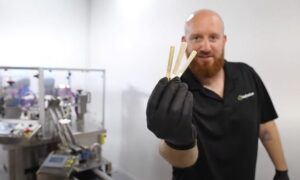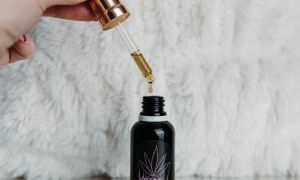You’ve probably never heard of TheraCann before, but it provides several essential services in the growing cannabis industry, helping those interested in entering the market tick all the necessary boxes from regulatory compliance right through to ongoing support.
We caught up with founder Chris Bolton at the Hemp Health and Innovation Expo to talk about TheraCann and the future of the Australian cannabis industry,
MORE: HHI Expo a promising sign for Australia’s newest industry – cannabis
So, what is TheraCann, and why does the team care about Australia?
Essentially, it’s a consultancy service specifically tailored for the cannabis industry:
“TheraCann provides full turn-key solutions to anyone looking to enter the cannabis space in an industrial scale,” explains Chris, “so being able to ensure all quality of production, right through to regulatory compliance.
“We provide the plans, the design, we implement [including building the facility], bring in all the equipment, provide all the training, then we provide all the ongoing support.”
In other words, they handle the nitty gritty side of running a cannabis business (medical or recreational) so that you don’t have to worry about the tedious elements such as licensing and regulatory compliance.
What strikes me most when talking to Chris, however, is his interest in and enthusiasm for the Australian medicinal market, one that – for all appearances – is in total infancy.
“We’re here at this fantastic trade show in Australia because we see this as the next opportunity globally,” he says. “We operate in five countries worldwide that are licensed and Australia is at the tipping point in our personal opinion.”
What makes him say that of a country which only just implemented the barest of medicinal policies?
“Well, we look at the number of patients purportedly consuming on a daily, weekly schedule. Australia outpaces Canada at a factor of 1.5 for that. So you have more users right now in Australia than we do in Canada, which has a full, thriving, medical community.”
It might come as a bit of a surprise to hear that – it did to me – and it means that the need for our medical industry to grow is even more pressing.
“If we look at the patient, they just want to get well, but they have to find a doctor knowledgable enough to prescribe what they need – the right cannabis strain, or mix of THC/CBD or other constituent products in the cannabis stream that will make them well.”
Right now we don’t have that. So, although we already have the patient base, there are still a few steps left before we’re in the position we need to be: a few official boxes to be ticked and a few frameworks put in place.
The value of talking to somebody like Chris is that he’s seen it all before with the growth of the Canadian cannabis industry and knows what needs to happen.
The first stage is a functioning and reliable medicinal industry:
“Obviously you need the final approval at a statewide level … but you also need to have a consistent, cohesive plan how doctors can comfortably prescribe product to patients … There’s always been a gap in most regulatory frameworks that connect the right patient to the right doctor, the doctor to the right producer, and the feedback loop between the patient and the producer … That dialogue has to be a tri-way discussion, and in markets that are successful, that’s the missing part. Once that comes together you’ll find that it blows the door open.”
The second step, according to Chris, is to prepare for the advent of a recreational market.
“You have to now start to think of the day when recreational becomes legal. You’re going to use the same licensed producers, under the same framework, for quality assurance, record keeping, traceability and whatnot to provide a recreational market which is often a hundred times the size of your medical market … not having that in place in the forethought of how you’re going to manage that is the number one hurdle of any jurisdiction.”
What we want to avoid in setting up our cannabis industry is jumping the gun like Uruguay did in going from full prohibition to full legalisation without the proper preparation.
“They went full legal for medical and recreational but they cannot meet demand,” says Chris. “They can’t produce enough, so what’s happening is illicit product is coming in through the back door which is dwarfing the growth of the industry. There’s no quality assurance and they’re losing the tax opportunity.”
When it comes to the medicinal side of things, mistakes like this are a massive concern as they limit the patients’ ability to get the proper treatment and a consistent product. For the recreational smoker, this isn’t as severe considering the degree of criminality in the current prohibition market, but for overall social wellbeing it’s better that it’s done right. Ensuring the proper systems are put in place for patients to access medicinal cannabis is our first priority, and from there it’s a short walk to the development of a functioning recreational market.











































































































